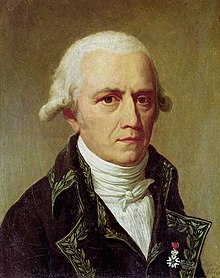
I think most proponents of cultural evolution acceot the idea that it has a Lamarckian component. I have writen about the topic before - e.g. see:
On Lamarckism in cultural evolution. I know many critics accept the role of Lamarckian evolution in culture as well, since one of their refrains is that cultural evolution is not Darwinian, it is Lamarckian.
Lamarck's most famous doctrines these days are the inheritance of acquired characteristics, and the principle of use and disuse. Those are the ideas he is most criticised for holding these days. Textbook orthodoxy says that Darwin's ideas were vindicated while those of Lamarck were rejected. Experiments by August Weismann involving chopping the tails off while mice and observing whether this "acquird characteristic" was inherited are often cited inthis context. The so-caled "Weisman barrier" prevents "acquird characteristics" from finding their way into the DNA of the descendants.
The problem with this is that other traits are inherited. If Weismann had chosen to focus on other traits - such as stress, food preferences or parasite load - he would have found that there was an inherited component. Human examples show the inherited of acquired characteristics most clearly. Jews inherit their missing foreskins from their parents. Tattooed individuals have tattooed offspring. Piercings are inherited. Foot binding, tongue plates, extended necks are all passed down the generations. The inheritance is cultural, not genetic, but Lamarck never confined his views to particular inheritance mechanisms. These were, generally speaking, not known in his day.
There are plenty of examples that don't involve culture too. Dogs inherit their fleas from their parents. Gut bacteria and tooth decay are also acquired characteristics that are inherited. Examples can also be found of Lamarck's principle of "use and disuse". Muscles are a famous example of this principle. With use, muscles grow, and with disuse they shrink. The question is: do offspring inherit their parents muscle distribution? The answer is: yes, sometimes, a bit. The changes are not primarily inherited via DNA - though of course DNA can affect how much you use your muscles. Instead, diet and exercise-related factors that influence muscle size are inherited culturally and through a shared environment.
This is all fairly simple and should be uncontroversial. Nontheless, modern critics of Lamarck refuse to accept that his ideas have any merit. What do they have to say for themselves? Science blogger Jerry Coyne provides a recent example in his article "Aeon tries to revive Lamarck, calling for a “paradigm” shift in evolution". Coyne starts off with a reasonable characterization of the inheritance of acquired characteristics, saying:
Lamarck, of course, was the French biologist and polymath who proposed that animals could stably inherit modifications of their body, behavior, and physiology that were imposed by the environment.
However, then Coyne rapidly goes off the rails, with:
The problem with this idea, and why Lamarck hasn’t become any kind of evolutionary hero, is that it doesn’t work. While the environment can play a role in sorting out those genes that their carriers leave more offspring, there’s no good way for environmental information to somehow become directly encoded in the genome. For that would require a kind of reversal of the “central dogma” of biology
This is, of course a mistaken view. When A mother acquires AIDS, and passes that "acquired characteristic" on to her offsping, no violation of the central dogma is involved. Coyne is totally missing two other possibile ways acquired characteristics can be inherited by offspring: non-DNA inheritance and symbiosis. The idea that DNA modifications must be involved is a very blinkered conception of evolutionary change.
With this, I think, Coyne's critique of Lamarck collapses. The modern vindication of Lamarck doesn't really detract from Darwinian orthodoxy very much. Darwin's ideas still remain very important. I would not describe Lamarckian evolution as much of a "paradigm shift". Darwin himself believed in the inheritance of acquired characteristics, and proposed an elaborate (though mistaken) theory about how they could be inherited. Lamarckian inheritance is more like an extra wrinkle to Darwinian evolution.
 I've long been interesed in the idea that acquired sexual characteristics can be inherited - as part of my more general interest in Lamarckian inheritance. Here is how I have previously described the idea:
I've long been interesed in the idea that acquired sexual characteristics can be inherited - as part of my more general interest in Lamarckian inheritance. Here is how I have previously described the idea: I think most proponents of cultural evolution acceot the idea that it has a Lamarckian component. I have writen about the topic before - e.g. see:
I think most proponents of cultural evolution acceot the idea that it has a Lamarckian component. I have writen about the topic before - e.g. see:  From
From 








